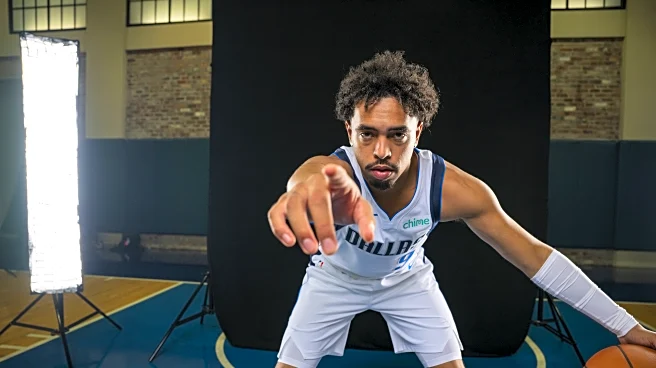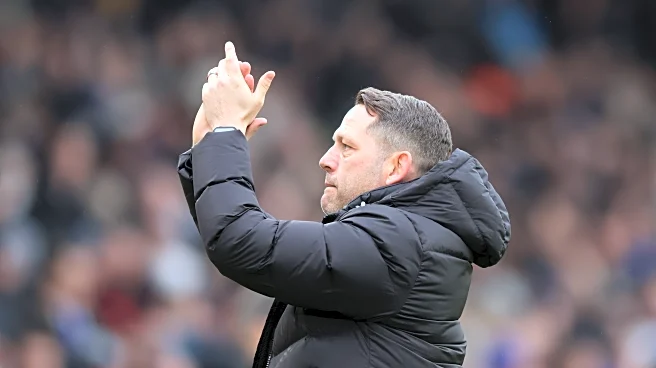Ryan Nembhard’s college résumé is tidy but undersold. After two seasons at Creighton and two at Gonzaga, he left Spokane as the NCAA’s assist leader in 2024-25. Nearly 10 dimes a game, with a passing vision
scouts called “impeccable.” He could shoot (40 percent from deep as a senior), he could probe pick-and-rolls, and he could steady an offense without ever needing to hijack possessions.
So why undrafted? The simplest answer is size. At 5’11″, Nembhard doesn’t project as an NBA defender of wings, and his lack of explosive scoring pop turned teams toward taller projects with shinier upside. Dallas swooped in quickly with a two-way deal, betting that his feel for the game was enough to justify development.
Big Question
Now, in an opening night backcourt missing the transcendent playmaking of Luka Dončić forevermore and waiting for Kyrie Irving’s ACL recovery, the Mavericks’ guard depth looks more like a patchwork quilt. D’Angelo Russell is penciled in as the starter. Dante Exum is back as a versatile second unit piece. Dennis Smith Jr. returns to Dallas as a point-of-attack defender. And somewhere in that shuffle sits Nembhard, the only one whose identity is unashamedly pass-first.
The question is whether that identity matters enough for him to keep his foothold.
Best Case Scenario
The ideal outcome for Ryan Nembhard is simple: he shows coaches in camp and exhibition play exactly what made him an NCAA assist leader. He piles up those outsized assist numbers in scrimmages, delivers the right read in preseason possessions, and leaves no doubt that he can organize an offense without being a focal point.
Occasionally, he reminds people he’s not only a passer — a hot shooting stretch here, a fearless drive there — just enough to conjure echoes of J.J. Barea as a change-of-pace scorer off the bench. But the foundation is always the same: stabilize, distribute, set the table.
If he does that, Dallas keeps a two-way player who provides something the rest of the guard room does not. D’Angelo Russell is streaky, Dennis Smith Jr is defense-first, Dante Exum is glue. Nembhard is pass-first, period. In the best case, he defines his lane so clearly that the front office never even considers cycling his two-way spot and near season’s end he finds his way onto a permanent roster spot much the way Brandon Williams did last season.
Worst Case Scenario
The risk for Nembhard is that his biggest strength doesn’t translate quickly enough. If his vision looks tentative against NBA length, if his passes arrive a beat late instead of on time, coaches may decide that “floor general” reads better on a college résumé than on a crowded NBA depth chart.
Without the size or defensive chops of Dennis Smith Jr., and without the versatility Dante Exum brings when healthy, Nembhard could slide into redundancy. If he’s not creating obvious advantages with the ball, the Mavericks may decide that his two-way slot is better spent on a wing or developmental project.
In this outcome, he doesn’t carve out a clear lane. He’s still a smart player, still a steady hand, but not distinct enough in camp to make Dallas commit to the long look. The danger isn’t so much that he fails outright — it’s that he blends into the background.
Season Goals
- Own the role: Make it clear he’s the one guard on the roster whose first instinct is to set up teammates.
- Keep the floor steady: Show in camp and practice scrimmages that he can run a half-court set without turnovers piling up.
- Hold his ground on defense: Compensate for size with positioning and effort so he isn’t an automatic target.
- Flash just enough offense: Hit open threes and finish the occasional drive so defenses can’t ignore him.
- Stay on the radar: Do enough in his two-way slot that coaches trust him for spot minutes if the rotation thins out.
Overall
Ryan Nembhard isn’t fighting to be Dallas’ savior. He’s fighting to be noticed, to make himself indispensable in the smallest ways a two-way guard can. If he proves that distribution-first guards still matter in a league obsessed with wings and scoring bursts, then the Mavericks have a niche piece worth holding onto.
In a backcourt full of streaky shooters, defensive merchants, and injury questions, his calling card is clarity. He sees plays before they happen, he passes where others probe, and if he sticks around, it will be because Dallas recognized the quiet value of a floor general who asks for nothing but the ball and the trust to move it.
Extra Credit – Musical Vibe When Nembhard is On His Game
Michael Stern and Jeff Lorber team up for a fun, upbeat bit of jazz fusion playmaking.












